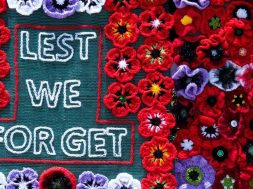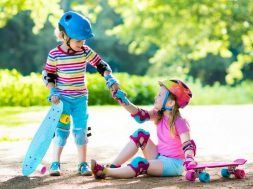
By: Rachel Doherty
Social skills are a set of actions we need to get on with others and navigate life. Parents, youth workers and school chaplains are well placed to help children and teenagers not only develop them, but keep them too.
Have you seen a four year old throws tantrum when they can’t have what they want? Or watched that person push into the line at the airport? They both have something in common.
A lack of social skills.
The good news is that we’re never too old to learn new ones or brush up on those we’ve forgotten.
“I consider social skills a bit like learning a language.” – Daniel Tammet
Why social skills matter
Social skills are those actions that help us communicate with others. They’re the things we do that help us to get along in groups and be social beings. They’re the things we say and do.
According to Skills You Need, there are 5 reasons why people need social skills:
- To have better relationships
- To communicate clearly
- To have less misunderstandings
- To open up better career options
- To feel happier
Whether you believe these reasons or not, social skills definitely make a difference to how you get on with others and get your message across. People with more social skills are likely to maintain good relationships and work well with others in ways people with few social skills can.
That gives you lots of reasons to help kids, whether they’re your own or other people’s, to build up their social skills.

The magic list of social skills
What is a social skill and what isn’t is open to interpretation. But it’s helpful to have a starting point.
Here’s 40 social skills everyone needs to master:
1. Being resilient. Not giving up when things get difficult. You can read more in my article on building resilience.
2. Having a sense of humour. Being able to laugh about life and even themselves.
3. Staying calm.
4. Looking people in the eye when talking to them.
5. Being loyal to friends.
6. Ignoring distractions. Being able to concentrate.
7. Being willing to learn.
8. Cooperating with others. Taking turns and doing their fair share when working in groups.
9. Talking about feelings. Putting a name to how they feel and spotting them in other people.
10. Being assertive.
11. Learning to compromise and negotiate.
12. Being helpful.
13. Controlling anger. Finding good ways to deal with disappointment or frustration.
14. Keeping confidences. Knowing how to keep things secret, and what things shouldn’t be secrets.’
15. Accepting difference.

“Empathy and social skills are social intelligence, the interpersonal part of emotional intelligence. That’s why they look alike.” – Daniel Goleman
16. Encouraging others.
17. Using the right voice when speaking. Choosing their inside or outside voice in the right locations.
18. Having empathy for other people.
19. Being flexible and accepting change without getting upset. There’s a whole group of skills in this one, often called “coping skills” which you can read about in this article.
20. Sharing.
21. Having courage to try new things.
22. Joining in with others.
23. Being polite and using good manners.
24. Making other people feel valued. Doing nice things for other people.
25. Taking responsibility for their words and actions.
26. Being honest.
27. Resolving misunderstandings and conflict.
28. Staying focused to finish a job.
29. Being patient.
30. Asking for help.
31. Being an active listener. Nodding and affirming what someone is saying. Showing you’ve heard the message by saying part of it back. To learn more about active listening, read this article from MindTools.
32. Taking turns when talking or playing a game.
33. Letting things go. Being able to forgive when people let them down or hurt them.
34. Being a positive thinker.
35. Think before you speak or act.
36. Respecting their own and other people’s rights.
37. Giving and receiving feedback.
38. Being considerate of other’s needs.
39. Following directions.
40. Responding to positive criticism.
This isn’t a list that most people are born with. In fact, most adults would see things on that list that they could work on improving. Social skills are actions that develop with practice but also decay with neglect.
If you’re working or living with young people, spotting social skills in use can be a great way to reinforce them. And point out when to use them to help kids keep them fresh.
Article supplied with thanks to Tweens 2 Teen.
About the Author: Rachel helps those living and working with young people, through supervision, coaching, speaking and consulting.













